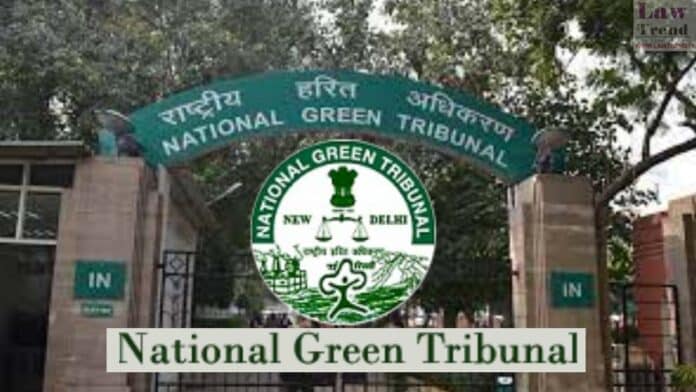The National Green Tribunal (NGT) has directed the authorities concerned to “disclose a comprehensive prevention plan to ensure that the air quality in Delhi is maintained at an acceptable level”.
Along with the plan on air quality management for the entire National Capital Region (NCR), the tribunal has also sought a “comprehensive study” on the contributory factors causing air pollution.
The NGT was hearing a matter where it had taken suo-motu (on its own) cognisance of a media report regarding the worsening air quality in Delhi and the NCR.
Earlier, it had directed the authorities concerned, including the Delhi Pollution Control Committee (DPCC), Central Pollution Control Board (CPCB), Municipal Corporation of Delhi (MCD) and the Commission for Air Quality Management (CAQM) for NCR and Adjoining Areas, to take “stringent measures” for improving the Air Quality Index (AQI).
A bench of NGT Chairperson Justice Prakash Shrivastava said according to the AQI from November 19 to 28, the air quality remained “very poor” throughout the NCR and dipped to “severe” on November 24.
The bench, also comprising judicial members Justices Sudhir Agarwal and Arun Kumar Tyagi and expert member A Senthil Vel, said the authorities have to “disclose a comprehensive prevention plan to ensure that the air quality in Delhi is maintained at proper acceptable level”.
It said the plan submitted to the tribunal was regarding invoking GRAP-1 to GRAP-4, which are the measures initiated once the AQI reaches the “poor”, “very poor” and “severe” categories.
The Centre’s Graded Response Action Plan (GRAP) for Delhi-NCR categorises actions into four stages: Stage 1 — Poor (AQI 201-300), Stage 2 — Very Poor (AQI 301-400), Stage 3 — Severe (AQI 401-450) and Stage 4 — Severe Plus (AQI above 450).
An AQI between zero and 50 is considered “good”, 51 and 100 “satisfactory”, 101 and 200 “moderate”, 201 and 300 “poor”, 301 and 400 “very poor”, 401 and 450 “severe” and above 450 “severe plus”.
“Concerted efforts are required by the authorities to ensure that the air quality may not go down to even the poor level and even the GRAP-1 may not be required to be invoked,” the bench said.
It said a “comprehensive apportionment study” is needed to ascertain the contributory factors resulting in the air quality dipping.
Also Read
“We are also of the view that the air quality in Delhi not only depends upon the contributory factors prevalent here, but also on the contributory factors in neighbouring areas. Therefore, a comprehensive plan (for air quality management) is required to be disclosed for the entire NCR,” the bench said in an order dated November 29.
The green panel took note of the submissions made by the counsel for the CAQM, according to which, the comprehensive plan for air quality management for the entire NCR would be submitted within a week.
“The counsel appearing for the different authorities are also granted a week’s time to place on record the source-apportionment study as also the comprehensive plan for air quality management of NCR, if available,” it said.
Directing them to “take all possible measures to ensure that the air quality in Delhi improves”, the NGT listed the matter on December 6 for further proceedings.




